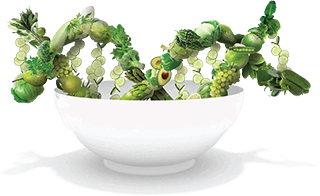This week, I’m revisiting vitamin D and its role in COVID-19, especially given the pandemic’s current state. Updated research has given us a clearer picture of vitamin D levels in relation to the severity of COVID-19 cases. In case you missed this week’s Facebook live, you can catch the replay here.
Vitamin D is a vitamin, yes, but it’s also a hormone produced in the kidneys where it enhances immunity and helps with infection prevention. There are two forms, D2 and D3: vitamin D2 (ergocalciferol) and vitamin D3 (cholecalciferol). D2 is a plant source, and D3 is animal-sourced, mainly from fatty fish or sheep lanolin.
So, what are the research findings? In a nutshell, those with optimal levels (40-60 ng/ml) had better outcomes and less severe cases. Vitamin D may protect against COVID-19 in two ways; first, it may help boost our bodies’ natural defense against viruses and bacteria. It also may help prevent an exaggerated inflammatory response, and an inflammatory response is what happens in COVID-19.
When sunlight activates vitamin D in the cholesterol in our skin cells, it makes its active form. It’s hard to get all the vitamin D we need from sunlight, especially now as the days grow shorter.
Some familiar dietary sources containing vitamin D includeoils from fatty fish, like salmon, egg yolk, mushrooms (the levels in those will depend upon the soil), fortified dairy and non-dairy products, fortified orange juice, and breakfast cereals. It’s hard to get what you need from diet alone, especially if your levels are low. It’s quite common to supplement.
When looking for a supplement, it’s important to remember the dosing, which is in IUs or International Units. D2 and D3 are not interchangeable. Just because your sibling takes D2 doesn’t mean that if you have D3 in the house, you should start taking it at your sibling’s dose.
Vitamin D is a fat-soluble vitamin, which means it’s stored in the body and can be toxic in excessive doses. If it’s been a while or you don’t know your current vitamin D level, have that checked before you start to supplement.
Join me as I dive deeper into the world of vitamin D and other topics for food, mood, and health in my Facebook community group, Food Sanctuary.

